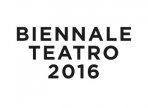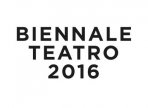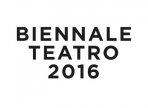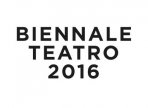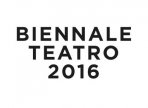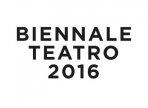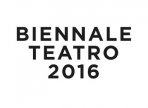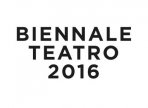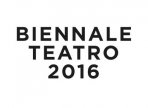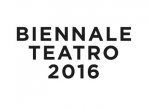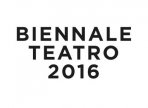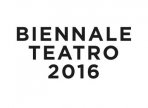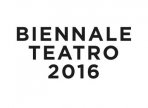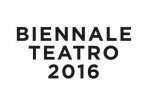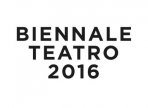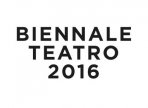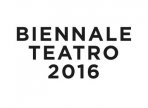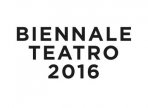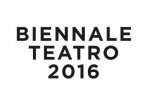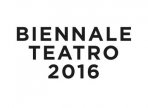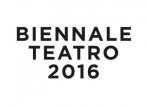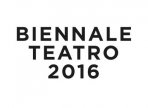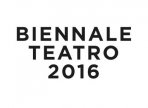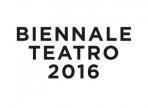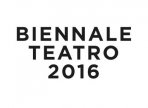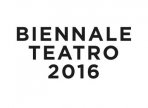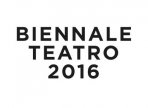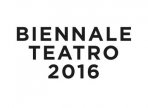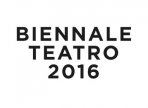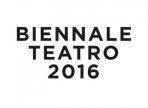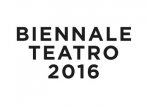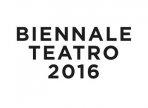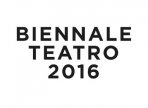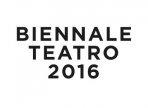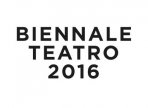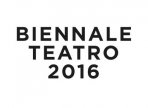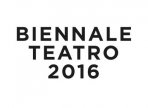Now in its 44th edition, the International Theatre Festival, which will take place from July 26th to August 14th, will be characterized, like Dance, by the integration between the shows and the workshops. Directors, actors, playwrights will not only be the authors and stars of the featured productions, but will also participate in the Festival for its entire duration as teachers for the young artists selected for the Biennale College – Theatre. Venice and the Festival also become the place that offers residencies to a selection of companies to develop phases of their future works, a place that fosters debate between artists, scholars, and audiences of theatre lovers. Running parallel with the 10 productions in the programme will be 17 workshops, 9 of which will produce a performance open to the public, as will the residencies of 4 companies, which will open their experience to spectators; finally, the programme features 19 encounters with all of the artists participating in the Festival.
Coherently with the choices he has made in past years, Director Àlex Rigola presents theatre with powerful impact, which “rips through” reality as it rewrites and transfigures the classics, with actions that bring real life and real people on the stage, or in which the audience becomes the co-star of the performance, subverting the rules of traditional theatre. Thus Oskaras Koršunovas creates his own personal Seagull, bringing Chekhov’s drama to its own zero degree, purified by a century of pathos and with a stage pared down to the minimum: there is no lake, there is no summer home, there is no theatre, there are only actors and spectators, in the role of observers of those who are living/acting on the stage. Jan Klata, director and dramaturge who directs the Stary Teatr in Krakow, the theatre of Kantor, Grotowski, Wajda and Lupa, comes to Italy for the first time ever preceded by the fame of his political theatre and the nickname “theatre dj” he was attributed for the speed at which he mixes scenes, music, movement, images, sound and light effects. He will be bringing his latest production to the Biennale, which won the Golden Yorick in 2015 for best adaptation of Shakespeare in his native country: King Lear, a drama about power and old age, has been adapted by Klata himself, who moves the story to the shores of the Tiber River in the present day, and immerses the production in the sounds of James Leyland Kirby, alias The Caretaker, an outsider on the electronic digital scene, in the choreographies of Macko Prusak, and in the live images of the videos on stage.
And Christiane Jatahy, back in Venice after her Italian debut at last year’s Biennale, transports the most famous Three Sisters of European theatre into a disorienting present-day Brazil, condensing Chekhov’s story into the tale of five main characters and meshing the two different perspectives of drama and cinema (the live performance is filmed): the audience can choose between the two options. What if they went to Moscow?, that is the title, where Moscow symbolizes utopia, the place of our desires, or the turning point, a leap in the dark towards something totally new, asks the three sisters Irina, Masha and Olga and the audience if change is indeed possible.
Even more radical is the operation advanced by Catalan director Roger Bernat in Please, continue (Hamlet), created with Dutch artist Yan Duyvendak. With the story of the most famous “pale prince” in the world reduced to a mere crime report, in which Hamlet is a young delinquent who kills his ex-girlfriend’s father, the production stages a trial that follows all the rules. The theatre is a court room where real prosecutors, judges and lawyers, playing themselves, put Hamlet on trial, accused of the murder of Ophelia’s father, with the spectators in the role of the jury of the people. Though it has been performed over 100 times in various countries around the world including Italy, the final verdict, different each time, provides no answer to the fleeting problem of the search for truth.
And again, tragic and distressing news stories – of Bastian Bosse, the young man who murdered his classmates and teachers then killed himself, and of Natascha Kampusch, who escaped from her captor and tormentor – were the inspiration for Le chagrin d’ogre by Fabrice Murgia, the play that at the age of twenty-five revealed him to the European theatre scene. Two parallel stories in which Murgia goes beyond the details and the biography of the individual characters to explore the adolescent world, its imagination, all the unhappiness that leads to the brink of alienation at the crucial moment of transition into adulthood. He does this by means of a hyper-realistic aesthetic, that blurs reality in a world of dreams.
Recipients of the Silver Lion of this edition of the Festival, Valeria Raimondi and Enrico Castellani of Babilonia Teatri find inspiration in the authenticity of life and as such they bring it to the stage. The setting is Pinocchio, which will be shown at the Biennale, in which the main characters are three contemporary Pinocchios, non-actors from the Association “Gli amici di Luca” who have suffered a coma and carry the signs of it in their bodies and in their spirit. They come to the stage to share their story in a tender and lucid production, in which the tale of Pinocchio, of which only a few fragments remain, becomes a key to dig deeper into our lives.
Clôture de l’amour by playwright, director and choreographer Pascal Rambert takes place on a more intimate level: two monologues and two different points of view tell the story of the violence at the end of a love affair. The play is a veritable actor’s challenge and has become a cult for Rambert, who has staged it in many languages around the world: Japan, United States, Russia, Croatia, Italy.
A totally anti-naturalistic and almost metaphysical view characterizes the theatre of Romeo Castellucci, in Venice with Ethica (Natura e origine della mente), the first in a cycle of five actions for the stage inspired by Spinoza’s writings. The first theatre action was incubated in the workshop held by Castellucci for the Biennale College – Theatre in 2013: the work was taken up again and developed, with the addition of a dialogue written by Claudia Castellucci, and made its debut in France before returning to Venice for its Italian premiere.
The Festival also features an affectionate tribute to Bob Wilson, the master of abstractionism on stage, where the gesture is the text and the light and sound have their own vocabulary. Titled simple Bob, the play was created in 1998 and produced anew in 2011 for the Texan director’s seventieth birthday by Anne Bogart, a militant of avant-garde theatre who has influenced much of American contemporary theatre, and the advocate of an important acting method developed with Japanese director Tadashi Suzuki.
With a touch of Spanish vitality, Rigola brings to the Festival an imaginary tribe of dancers, acrobats, actors and horses, parrots and a crow: the Baro d’Evel Cirk will take audiences into a fantastic world that stirs the deepest waters of our inner selves. Bestias, which made its debut in Lyon last year, takes place on the boundaries between our wildest and most instinctive selves and the intelligence and emotions that animals are capable of, the subtle, respectful and tender bonds that are created between the two. Led by Camille Decourtye (singer and acrobat) and Blaï Mateu Trias (clown), both specialized at the Centre National des Arts du Cirque di Châlons-en-Champagne, the company practices the pluridisciplinary approach of the new circus: collaborators in the show include the illustrator Bonnefrite, the Catalan dance company Mal Pelo with Maria Muñoz and Pep Ramis, the musician Nicolas Lafourest.
This year too the greatest names on the international scene will be conducting the 17 workshops of the Biennale College – Theatre, which will produce 9 short performances that will mesh with the plays featured at the Festival.
Roger Bernat, Pascal Rambert, Stefan Kaegi, Jan Klata, Fabrice Murgia each will lead a workshop “towards creation”; Declan Donnellan, Golden Lion for Lifetime Achievement of this Festival, Oskaras Koršunovas, Anne Bogart, Willem Dafoe will conduct workshops focusing on the actor’s work and on acting; the Baro d'Evel companywill introduce participants to the languages of the circus; Romeo Castellucci and Christiane Jatahy will be the Masters leading two directing workshops; Martin Crimp, Simon Stephens, Mark Ravenhill,exponents of the famous 'in-yer-face' generation of English theatre, are the Masters who will conduct the three workshops for playwrights; they will be joined by the workshop led by Eva-Maria Voigtländer, based at the Burgtheater in Vienna, who will introduce the exquisitely German figure of the dramaturg.
Four important companies will be in residence in Venice to develop the first phase of new works and will perform the results of their work for an audience. They include the companies of Toni Servillo with the Teatri Uniti, of Enrico Casagrande and Daniela Francesconi from Motus, of Angélica Liddell with Atra Bilis Teatro, of Valeria Raimondi and Enrico Castellani, founders of Babilonia Teatri working in Venice with ZeroFavole.
Television reporter Anna Pérez Pagès with theatre critics and essayists Andrea Porcheddu and Roberta Ferraresi will conduct the media and theatre critics’ workshop that will provide a day by day account of the Theatre Biennale behind the scenes.
The international call for participation in the selection for the workshops of the Biennale College – Theatre will be published on the Biennale’s website www.labiennale.org starting May 10th 2016.


